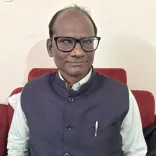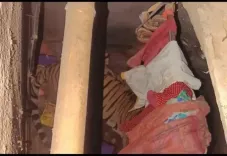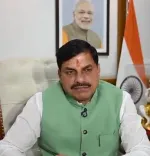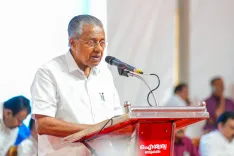Has Axiom Space Launched India's Human Space Flight Journey?
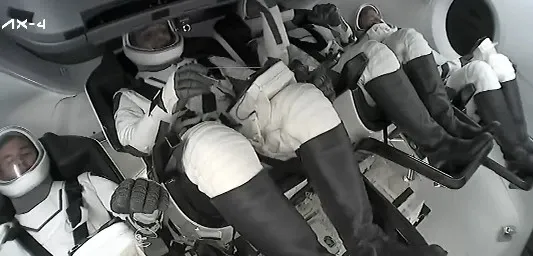
Synopsis
Key Takeaways
- Shubhanshu Shukla becomes the first Indian to reach the ISS.
- India's human spaceflight program returns after 41 years.
- The mission is a collaboration between Axiom Space, NASA, and SpaceX.
- Shukla will conduct pioneering research on food in space.
- This mission symbolizes national pride and technological advancement.
New Delhi, June 25 (NationPress) IAF Group Captain Shubhanshu Shukla has embarked on a groundbreaking mission as he aims to become the first Indian to reach the International Space Station on Wednesday, highlighting the evolution of India's human space flight.
After a long gap of 41 years, an Indian will once again venture into space. Shukla will follow in the footsteps of Rakesh Sharma, who flew in 1984.
“This journey isn’t mine alone; I carry the Indian flag with me, marking the journey of India's human space flight,” Shukla expressed while aboard the flight.
“Liftoff for #Ax4. The #Ax4 crew is en route to the space station,” tweeted Axiom Space, which has organized this mission in partnership with NASA and SpaceX.
“Liftoff of Ax-4!” SpaceX chimed in.
The launch occurred at 2:31 a.m. EDT (noon IST) from Launch Complex 39A at NASA’s Kennedy Space Center in Florida, utilizing a new SpaceX Dragon spacecraft on a Falcon 9 rocket.
This liftoff follows multiple delays, having been postponed at least six times.
“India is making its return to space, Jai Hind,” Shukla posted on X prior to the mission launch.
“After 41 years, the Indian flag will once again wave in space,” he added.
In a heartfelt moment, Shukla dedicated a note to his wife, Kamna.
“A special thanks to Kamna for being my incredible partner. Without you, none of this would have been feasible, but more importantly, none of it would hold significance,” Shukla remarked in an Instagram post.
He shared a poignant photograph capturing their farewell through a glass barrier.
Shukla extended gratitude to all those involved in the mission for their unwavering support.
He is serving as the pilot alongside US Commander Peggy Whitson.
The crew also includes Slawosz Uznanski-Wisniewski from Poland and Tibor Kapu from Hungary, both acting as mission specialists. Once on the ISS, Shukla will execute groundbreaking experiments focusing on food and space nutrition.
Upon arrival at the ISS, Shukla will investigate the impacts of microgravity and space radiation on edible microalgae—a nutrient-rich and promising food source for upcoming space endeavors.

